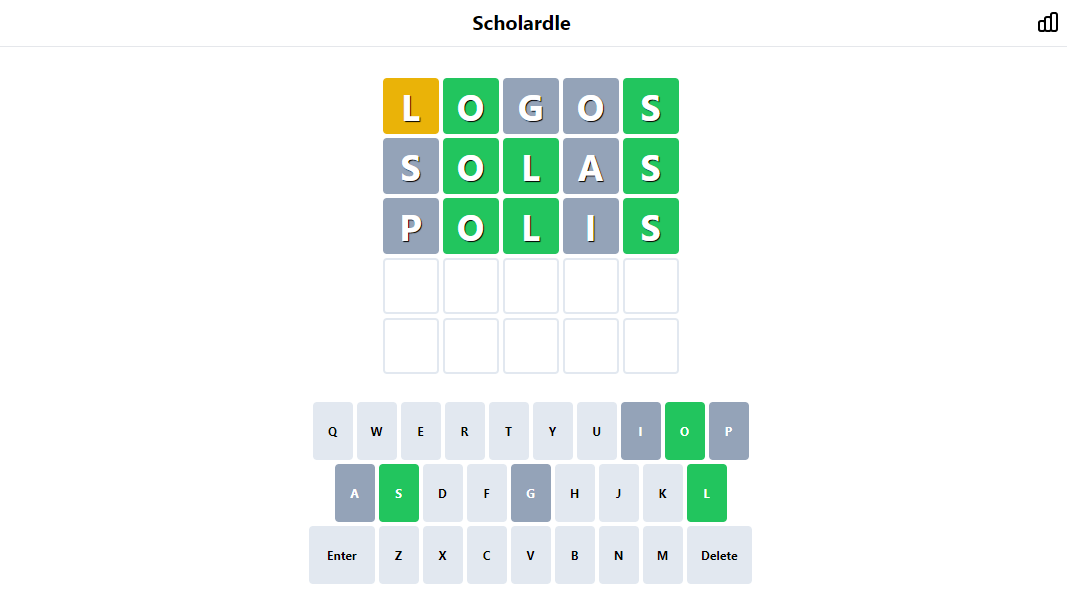Scholardle is Wordle, but actually hard - here’s how to play
Wordle too easy? Try this instead

Wordle isn’t going anywhere, but it might be getting easier. While other Wordle clones like Heardle have repurposed its five-letter-guessing formula in different ways, a new spin-off ups the challenge for those brainiacs who fancy themselves kings of the linguistic guessing game.
Scholardle is pitched as Wordle for those who like a challenge. Created by the company behind academic proofreading tool Writeful, it follows the same template of the original game. You’ll need to guess a five-letter word in five tries or less, using color clues to narrow down the correct answer. The target word resets every 24 hours, and the game will record your winning streak.
The twist, however, is that you won’t be trying to guess from the everyday vocabulary we’re all familiar with, but words from the esoteric, jargon-filled world of academia. Its creators say they’ve collected a list of the top academic words for Scholardle, effectively challenging your understanding of the most obscure vocabulary in the English language.
That should increase the challenge a fair bit, although university students and professors may have an advantage after reading all those academic journals and manuscripts.
You can play the game on the Scholardle website and it can be played on any device that can open a web browser.
The game is based on an open-source project called Reactle that was designed as a clone of Worlde to be openly shared and edited into different versions or themes. It’s based on the same open-source code that was used to create the Pokémon-themed Squirdle and the Harry Potter-styled Wizarding Wordle.
Scholardle also includes an optional hard mode that forces you to use any revealed hints in subsequent guesses, as well as a dark and high contrast mode display mode.
Get daily insight, inspiration and deals in your inbox
Sign up for breaking news, reviews, opinion, top tech deals, and more.
Another clone to get you hooked
After Wordle took the internet by storm earlier this year, it didn’t take long for clones of the guessing game to pile up. Some cater to specific themes, others expand the game’s features in new directions, while many more simply copy the game’s basic format so you don’t have to wait 24 hours for another challenge.
Scholardle probably won’t see the same success as the original game, but for those players who have mastered its algorithm and committed every casual word in the English language to memory, its academic spin will provide a new challenge. We won’t go so far as to say you’ll learn much by playing the game, but maybe you’ll pick up some highfalutin terms you can show off to your friends.
We can be sure this won’t be the last Wordle spin-off, though. As long as people are eager for a linguistic challenge, others will be creating more Wordle clones.

Callum is TechRadar Gaming’s News Writer. You’ll find him whipping up stories about all the latest happenings in the gaming world, as well as penning the odd feature and review. Before coming to TechRadar, he wrote freelance for various sites, including Clash, The Telegraph, and Gamesindustry.biz, and worked as a Staff Writer at Wargamer. Strategy games and RPGs are his bread and butter, but he’ll eat anything that spins a captivating narrative. He also loves tabletop games, and will happily chew your ear off about TTRPGs and board games.